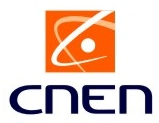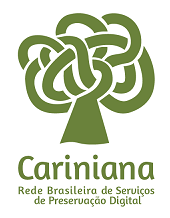Álvaro de Campos, José Régio and Moguel Torga: From de absolut look for the relative look
DOI:
https://doi.org/10.5433/el.2009v3.e25155Keywords:
Álvaro de Campos, José Régio, Miguel Torga, Relative lookAbstract
This study has taken into account three poems from the beginning of the 20th Este trabalho objetiva mostrar essa visão relativa do mundo por meio de três poesias portuguesas do início do século XX. Trata-se de um recorte de textos que nos possibilitam discutir esses descaminhos e contradições de que falamos anteriormente, century in Portugal: "Lisbon Revisited (1923)", Álvaro de Campos; "Cântico Negro", José Régio; and "Livro de Horas", Miguel Torga. The three poems have in common the subject of the relative look on existence as opposed to the absolute look. The poems, withstanding the individual awareness to group submission, reflect upon human condition, either in denial of predetermined systems or in incisive self-affirmation and also from the of constatation of the freedom of choice. From an individual point of view, we come to a level of awareness that takes the thinking self of each poem to excentricity and the isolation.Downloads
References
HUGO, V. Do Grotesco e do Sublime. Tradução: Célia Berretini. São Paulo: Perspectiva, 1988. (Prefácio Cromwell)
MOISÉS, M. A literatura portuguesa. ed. 33. São Paulo: Cultrix, 2005.
MOISÉS, M. A literatura portuguesa através dos textos. ed.29. São Paulo: Cultrix, 2004.
NUNES, B. Passagem para o poético. Filosofia e poesia em Heidegger. ed. 2. São Paulo: Ática, 1992.
NUNES, B. A Visão Romântica. In: GUINSBURG, J. O Romantismo. São Paulo: Perspectiva, 1993.
ROSENFELD, A; GUINSBURG, J. Romantismo e Classicismo. In: GUINSBURG, J. O Romantismo. São Paulo: Perspectiva, 1993.
SARTRE, Jean-Paul. Que é a literatura? ed.2. Tradução: Carlos Felipe Moisés. São Paulo: Ática, 1993.
Downloads
Published
How to Cite
Issue
Section
License
Copyright (c) 2009 Estação Literária

This work is licensed under a Creative Commons Attribution 4.0 International License.
A revista se reserva os direitos autorais sobre as contribuições publicadas, sem retribuição material para o autor, podendo disponibilizá-las on-line no modo Open Access, mediante sistema próprio ou de outros bancos de dados; também poderá efetuar, nos originais, alterações de ordem normativa, ortográfica e gramatical, com o intuito de manter o padrão culto da língua, contando com a anuência final dos autores. As opiniões emitidas pelos autores são de sua exclusiva responsabilidade.












